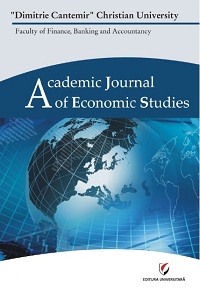Economic Efficiency of Farm Size, Fertilizer, and Improve seeds on Rice Production in Kano State, Nigeria
Economic Efficiency of Farm Size, Fertilizer, and Improve seeds on Rice Production in Kano State, Nigeria
Author(s): Yusuf Tanko, Kang Cheah Yong, Rabiul IslamSubject(s): National Economy, Micro-Economics, Agriculture, Socio-Economic Research
Published by: Editura Universitară & ADI Publication
Keywords: Economic efficiency; Farm size; Fertilizer; Improved rice; Kano;
Summary/Abstract: Studies on the efficiency of rice production focused on the technical and allocative; thus, the literature on economic efficiency in Kano is absent. The objective of this study is to identify the economic efficiency of fertilizer, hybrids, and farmland on rice farming. Using the multistage and purposive sampling, questionnaires distributed to a random sample of 768 rice farmers. The result of the socioeconomic characteristics shows that 55.3% of the respondents are within the active population (30 to 49) years, 55.3% have a low level of education, 78.7% spent at least six years in rice farming, 61.9%, 76.7%, and 47.7% have access to nitrogen fertilizer, improved rice, and at least one extension visits respectively. Further, the stochastic frontier result shows that an average rice farmer could economically save inputs worth of 29.54% to meet the most efficient counterpart in the study area. The worst rice farmer could economically save the cost of inputs by 86.18% to meet the best counterpart. The study suggests that overhauling the educational system, guidelines for agricultural inputs usage should have a translated version into the three major Nigerian’s languages (Hausa, Igbo, and Yoruba). Collaboration between public and private to provide more extensions, construct rural link roads.
Journal: Academic Journal of Economic Studies
- Issue Year: 6/2020
- Issue No: 2
- Page Range: 21-32
- Page Count: 12
- Language: English

